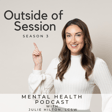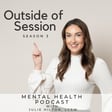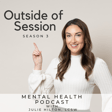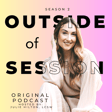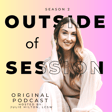
Navigating the Journey of Donor Conception
Explore the emotional landscape of donor conception in this episode, as Julie sits down with Linsday Harris, who was gracious enough to share personal testimony, expert insights, and practical guidance. We delve into the considerations, choices, and challenges that arise, offering valuable insights for those contemplating donor conception, as well as fostering understanding for those curious about the diverse stories within this realm of family building.
About today's guest:
Lindsay Harris is an LCSW in private practice at Key Counseling Group in Atlanta, GA. She specializes in maternal mental health and those facing infertility challenges. She enjoys incorporating parts work into her practice, also known as Internal Family Systems or IFS. She works with individuals struggling with depression, anxiety, perfectionism, life transitions, LGBTQ issues and more. Lindsay is also passionate about working with couples and has extensive training in Emotionally Focused Therapy which guides her work with couples. Lindsay serves on the board of the U.S. Donor Conceived Council. USDCC is a nonprofit that strives to increase awareness of the needs, interests, and challenges of donor conceived people and advance change that promotes and protects their health, welfare, and human rights.
Resources: www.usdcc.org
Get in touch with Lindsay:
www.keycounselingatl.com
Instagram: @keycounselingatl
